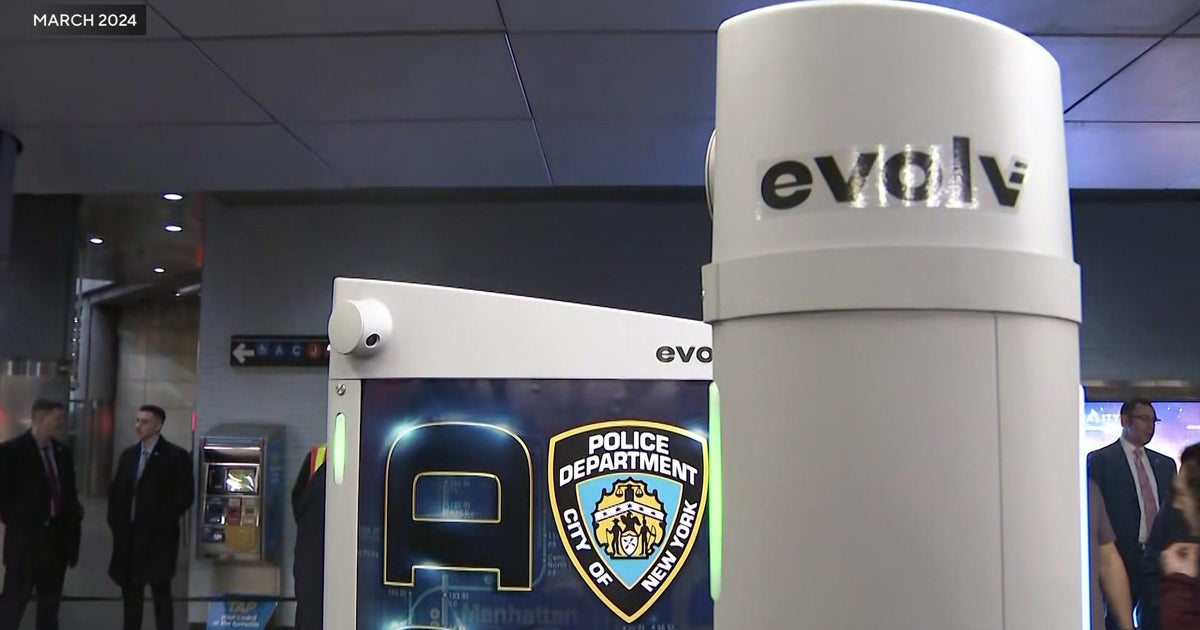MTA board votes in favor of $15 congestion pricing toll for most drivers entering Manhattan's Central Business District
NEW YORK -- It's full speed ahead for the MTA's costly and controversial congestion pricing plan.
The board on Wednesday gave the green light to a proposal to charge a fee to drive into Manhattan's Central Business District.
There will now be a four-month public comment period.
MTA Chairman Janno Lieber said the MTA board bought the fee proposal, "hook, line and sinker." However, a few so-called tweaks may be in the offing, changes sought by Mayor Eric Adams.
By a vote of 9 to 1 the board approved the recommendations of the Traffic Mobility Review Board to charge high fees to drive into Manhattan below 60th Street. The lone holdout was David Mack of Nassau County.
"I cannot vote for it. Maybe there's other ways -- tolls, federal government, other subsidies, other taxes," Mack said.
Watch Marcia Kramer's report
Mack was reflecting the views of suburban commuters on both sides of the Hudson River who are alarmed at the stiff fees they will have to pay during the day:
- $15 for cars
- $7.50 for motorcycles
- $24 for small trucks
- $36 for big trucks
"I just think that this is just an added burden," Mack said.
But Kathryn Wylde, a member of the mobility panel and the head of the Partnership for New York City, said companies are supporting congestion pricing because of the high cost of congested roadways to their bottom line.
"Excess traffic congestion is costing the New York City region over $20 billion a year," Wylde said.
READ MORE: Congestion pricing in NYC: Map, questions and answers
And while the board adopted the panel's recommendations in their entirety, there were calls from board members for a number of changes sought by Mayor Adams -- exemptions for people going to medical appointments, exemptions for school buses, and to help the yellow cab industry get on its fee by not forcing passengers to pay an extra $1.25.
"They are still struggling to recover form the pandemic. There's still 54% fewer trips in the Central Business District, and 25% fewer taxis on the road," board member Midori Valdivia said.
"I think it's essential to provide some exemption, particularly those with public school children," board member David Jones said. "I don't want to add another burden to the public education system and the charter schools."
Although the review board argued against exemptions, saying every exemption would raise the base toll, the plea to exempt school buses appeared to touch a receptive chord.
"We do want to exempt school buses," Lieber said. "That's work that needs to take place, about how do we identify school buses, most of which are operated by private companies that are carrying public school students versus buses that are functioning as party buses?"
Watch Marcia Kramer's report
There are concerns commuters will try to get creative to find ways to dodge the tolls, including altering or hiding their license plates.
Lieber says they're ready to deal with toll evaders.
"We're going to go after it hard and make sure that people are not getting away with that because the credibility of the whole effort is at stake," he said.
Those living on the Upper West Side expressed concerns Wednesday night about traffic and lack of parking on their streets.
"The mad scramble trying to find street parking, and I think it's already kind of a pretty stressful experience here locally on the Upper West Side," resident Bernard Chang said.
"There's certainly a risk that it becomes more congested with people parking so people don't have to then take their vehicles over the threshold," resident Ben Schaye said.
"I don't see the reasoning behind it. Everything already is super high right now with inflation," commuter Emily Persaud said.
"I know there's been a lot of discussion about exemptions, and I think those should be extremely limited because the rest of us just end up having to pay for it," Schaye said.
The public hearings will take place at the end of February and early March. Officials hope to start the program in the spring, but conceded it is being held up by two suits filed by officials in New Jersey.




